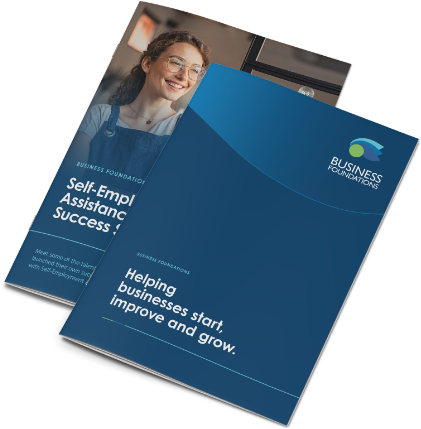SEO Basics – 5 Ways To Improve Your Google Search Ranking
October 11, 2024
Online technology has made today’s market more competitive than ever. Ensuring your business has a strong online presence, including ranking high in search engine results, has become a vital step in your business’s success. Google remains the preferred search engine in a consumers’ purchasing journey, claiming 81.95% of the global search engine market.
SEO refers to ‘Search Engine Optimisation’ and is process of optimising your website to increase the chance of appearing higher in search engine results, without paying for sponsored ads. Having a great SEO strategy can boost your website traffic, leading to better quality leads, an increase in sales, and an overall better customer experience. Learning what works best for Google’s algorithm can be a daunting process, so here are five key areas to focus on to improve your Google search ranking.
1. Optimise your Google Business Profile
When someone searches for a business with their location data switched on, Google will generally prioritise businesses located nearby. Ensuring you regularly update your profile with accurate, complete information like trading hours, contact details and addresses can improve your chances of appearing in local search results and improve your Google maps ranking. Google also prioritises results based on reviews, so it’s a good idea to enable this option and encourage your customers to leave reviews.
2. Regularly update your website with high-quality content
Updating your website regularly with SEO-friendly content is important for a number of reasons. Google’s algorithm can tell when a website page has been updated and will assess the page again to determine its relevance to a users’ search query, which can boost your search engine ranking. Updating your website regularly, including product pages and blog posts, provides customers with up-to-date information about your business and solutions to pain points.
3. Identify and incorporate relevant keywords in your website copy
The best way to rank higher in search results to by proving to Google that your website can answer the users’ search query. The first step is to find out what your target audience is typing into Google when they’re looking for your product or service. You can use Google Ads Keyword Planner to help you identify relevant keywords, even if you don’t pay for ads. Once you have identified relevant keywords, incorporate them naturally into your headings, product descriptions and content in a way that provides value to your customers. However, it is important to ensure you are not overusing the same keyword (also known as keyword stuffing), as this can be detected by Google’s algorithm and negatively impact your search rankings.
4. Include descriptive meta titles, descriptions and alt tags
Meta titles and descriptions are pieces of HTML code that help Google understand what your content is about and the relevance to users’ search queries. It also determines how your webpages will appear to users in search results, so they should be clear, concise and include relevant keywords. You don’t necessarily need to be a HTML whiz to incorporate them into your website either, as hosting platforms like WordPress have plugins you can utilise to simplify this process.
Alt tags are descriptions you can add to images that describe what a website image shows. Alt tags were originally designed to make web pages more accessible for the visually impaired but have now become an important factor in search engine rankings since they also describe the contents of the image to Google.
5. Maximise your technical SEO
Technical SEO refers to the process of improving the back-end components of your website to make them easier for search engines to find and rank. Making improvements to components that will improve the user experience, like loading speed and mobile optimisation, also makes it easier for Google to access your website and determine its relevance to search queries. Having a slow website or one that is not easily viewable on mobile devices can result in a negative customer experience and increase your bounce rate. This tells Google that your site is not optimised, which can negatively impact your search engine ranking. There are a variety to free and paid tools you can use to conduct a technical SEO check so you can make informed decisions about areas of your website that need improvement.
If your need further support in understanding SEO and which components you should focus on for your business, join us for our free ‘SEO Basics: 5 Things You Can Do to Boost Your Google Ranking’ workshop in Gosnells next week. You can also access further support with four hours of one-to-one advisory with a Digital Action Plan.
Acknowledgement Of Country
Business Foundations acknowledges the traditional custodians throughout Western Australia and their continuing connection to the land, waters and community. We pay our respects to all members of the Aboriginal communities and their cultures; and to Elders both past and present.
Victoria
The Commons
80 Market Street,
South Melbourne VIC 3205
admin@businessfoundations.com.au
Western Australia
Wesley Central
2 Cantonment Street,
Fremantle WA 6160
admin@businessfoundations.com.au


Get In Touch
Have a question or to find out how we can help you, please get in touch.






